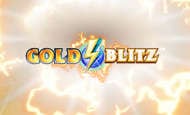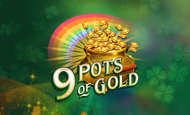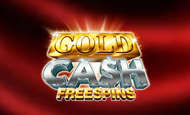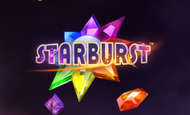Sarah won
£137,452
Lynn won
£120,960
Ross won
£120,650
Beryl won
£100,000
Katrina won
£100,000
Mamun Rashid won
£100,000
Susan won
£75,000
Estera won
£73,225
Mihai won
£71,205
Daniel won
£70,600
Sarah won
£137,452
Lynn won
£120,960
Ross won
£120,650
Beryl won
£100,000
Katrina won
£100,000
Mamun Rashid won
£100,000
Susan won
£75,000
Estera won
£73,225
Mihai won
£71,205
Daniel won
£70,600
Online Slots UK: Real Money Play
Welcome to Slots Baby, the UK's vibrant hub for online slots, casino classics, and live casino action, inspired by the swinging sixties. Our games, ranging from RNG-based slots to live dealer sessions, emphasise fair play and transparent outcomes in a secure setting.
Regulated by the UK Gambling Commission (UKGC), we uphold strict standards for casino integrity and safety, offering a diverse selection that may appeal to all types of players. Our mission is to provide entertainment and joy in a responsible gaming environment, emphasising the importance of playing safely.
Discover the charm of Slots Baby, where nostalgia meets modern casino gaming. Enjoy a world where entertainment is a constant, and every game is a chance for a fair and enjoyable experience. Let the good times roll!
How To Play Online Slots
Embarking on your journey with online casino games at Slots Baby can be a straightforward and enjoyable process. Whether you're a newcomer or a seasoned enthusiast, our platform is designed to ensure you can start playing with ease. Here's a simple guide to get you spinning the reels:
- Register and Log In: The first step is to create an account with Slots Baby. Follow the registration process, which includes providing some basic information and verifying your account. Once set up, log in to access our wide range of online slots.
- Choose Your Slot Game: We offer a diverse selection of slot games, from classic fruit machines to the latest video slots with advanced graphics and features. Each game comes with its own theme, paylines, and unique bonuses. Take your time to browse and find the one that appeals most to you.
- Understand the Game Rules: Before you start playing, it's crucial to understand the specific rules of your chosen slot. This includes knowing the paylines, the value of each symbol, and how bonus features may be triggered. Most games include a 'Help' or 'Info' section that provides all the necessary details.
- Set Your Bet Size: Adjust your bet size according to your budget. Online slots typically allow you to choose the coin size, number of coins per line, and sometimes the number of paylines you want to activate. It's essential to balance the fun of playing with responsible betting.
- Spin the Reels: Once you're all set, press the 'Spin' button to start the game. The reels will spin and then come to a stop, revealing if you've won based on the combination of symbols on the paylines.
- Explore Bonus Features: Many online slots offer extra features such as free spins, wild symbols, and bonus rounds that can enhance your playing experience.
- Play Responsibly: Remember, playing slots is about entertainment. Set yourself limits for time and money spent, and never chase losses.
By following these steps, you'll be ready to enjoy the world of online slots at Slots Baby. Dive into our collection and find your favourites, all while experiencing the fun and excitement in a safe and responsible environment.
Reels, Free Spins, Jackpots, Bonus Features
When diving into the vibrant world of online slots at Slots Baby casino, you may encounter a variety of elements that can define the gameplay. Understanding these components can greatly enhance your experience as you play. Here's a brief overview:
Slot Reels: The reels are the vertical columns that spin when you play a slot game. The number of reels can vary, with most games featuring three, five, or even more. Each reel contains a series of symbols, and the arrangement of these symbols after a spin determines whether you win based on the game's paylines.
Free Spins Bonus: One of the most sought-after features in slot games, free spins, as the name suggests, allow you to spin the reels without placing a bet for a specified number of turns. Free spins are often triggered by landing a certain combination of symbols, commonly known as scatter symbols.
Jackpots: Many slot games offer potential jackpot prizes, which can be either fixed or progressive. A fixed jackpot has a set amount that can be won, while progressive jackpots increase every time the game is played, but the jackpot is not won. Progressive jackpots can potentially accumulate to substantial amounts, offering the chance of significant winnings.
Bonus Features: Beyond the basic gameplay, many slots offer additional bonus features that may be unlocked during play. These features vary widely from game to game and can include bonus rounds, pick-me games, wild symbols, and win multipliers that can increase your potential winnings.
To fully understand how these elements work in a specific slot game, players can read the game rules and paytable before starting. This information can provide you with crucial details about the game's features, how to trigger them, and the potential rewards they offer.
Slot Machine Odds & RTP Explained
Understanding the odds of slot machines and the concept of Return to Player (RTP) is essential for anyone enjoying the world of online slots at Slots Baby. These elements play a crucial role in shaping your gaming experience, offering insights into the potential payback of the casino games you choose to play.
RTP (Return to Player): RTP is a theoretical percentage indicating the potential amount of all wagered money a slot machine may pay back to players over time. For instance, a slot with an RTP of 95% may theoretically pay out £95 for every £100 wagered. It's important to note that the RTP is calculated over millions of spins, providing a long-term average rather than a guaranteed return for each session.
Slot Machine Odds: The odds of winning on a slot machine are determined by the game's programming, including the RTP and volatility. Volatility refers to the frequency and size of potential payouts; some games can offer frequent small wins (low volatility), while others may pay out less often but with the potential for larger prizes (high volatility).
It's essential to understand that the RTP is a theoretical value and does not guarantee any winnings. Slots are regulated games of chance, with outcomes determined by Random Number Generators (RNGs) to ensure fairness and unpredictability. Each spin is independent, with no influence from previous or future spins, making it impossible to predict the outcome of any given play.
Regulated by the UKGC, Slots Baby ensures that all our slot games provide clear information on their RTP and undergo rigorous testing for fairness and random outcomes. While the RTP offers a guideline on the potential payback of a game, the unpredictable nature of slots means that anything can happen.
Players are encouraged to view slot games as a form of entertainment rather than a guaranteed way to make money. Choosing games with an RTP that you're comfortable with, combined with responsible gaming practices, can help make your online slot experience at Slots Baby enjoyable and fun.
How Do Online Slots Decide Who Wins?
The outcome of each spin in online slots is governed by Random Number Generators (RNGs). These digital algorithms produce random sequences of numbers every time the spin button is pressed, which correspond to the symbols displayed on the reels. This ensures each spin is completely independent and has an equal chance of winning.
RNGs are critical for maintaining the fairness and unpredictability of online slots. In the UK, these systems are rigorously tested and regulated by the Gambling Commission to meet strict standards of transparency and integrity.
Because of RNGs, slot outcomes are entirely random, making slots a pure game of chance. There's no way to predict or influence what happens on each spin. Understanding this can help to frame online slots as a form of entertainment, with enjoyment coming from the experience rather than the outcome.
Our Selection of Online Slots
At Slots Baby, we take pride in offering a diverse array of online slot games to cater to every player's preferences. From high RTP slots to Megaways games and the classic charm of fruit machines, here’s a glimpse into our selection:
High RTP Slots:
For players interested in games with a higher Return to Player percentage, we offer titles known for their RTPs. Some notable examples include:
- Finn and the Swirly Spin: RTP of 96.62%.
- Big Bad Wolf: RTP of 97.34%.
- Joker's Jewels: RTP of 96.5%.
- Esqueleto Explosivo: RTP of 96%.
- Cornelius: RTP of 96.04%.
- Rainbow Riches Pick ‘n Mix: RTP ranges from 94% to 98%.
- Rainbow Riches Reels of Gold: RTP also varies between 94% and 98%.
Megaways Slot Games:
Megaways slots revolutionise the traditional slot format with a dynamic reel modifier that changes the number of symbols on each reel with every spin. This innovation can significantly increase the ways to potentially win, offering players a unique and unpredictable gaming experience.
Progressive Jackpots:
While we highlight the allure of progressive jackpot slots, it's essential to note that the availability of these games can vary. Progressive jackpots grow over time, with a portion of every bet contributing to the jackpot, potentially leading to massive sums. However, players should verify the current offerings for such slots.
Classic Online Fruit Machines:
For those who enjoy the nostalgia of traditional gambling, our classic fruit machine slots offer a digital twist on the iconic slot experience. These games can feature familiar symbols like cherries, lemons, and BARs, providing straightforward and enjoyable gameplay reminiscent of old-school casinos.
Each category of our online slots has something unique to offer, whether it's the chance for higher returns, the excitement of numerous win ways, the allure of big potential jackpots, or the simplicity of classic gaming. Players can explore these games and read the specific rules and paytables to understand the unique features and opportunities they may offer.
New Casino Slots Added Weekly
At Slots Baby casino, our collection is constantly evolving. We're excited to bring fresh and innovative casino slots to our platform every week, ensuring there's always something new for you to explore. Our commitment to diversity and the latest gaming trends means you'll find a mix of themes, mechanics, and styles in our ever-expanding library.
From the latest releases in the world of Megaways and high RTP slots to modern takes on classic fruit machines, our selection is designed to cater to all tastes and preferences. Each new addition comes with its own set of features, possible bonuses, and themes, promising a unique gaming experience for every player.
Stay tuned to our platform for the newest slots from leading developers, all ready to deliver entertaining gameplay and immersive graphics. Dive into the latest adventures Slots Baby has to offer and discover your new favourite game.
Real Money Play
Slots Baby online casino is dedicated to offering games for real money, giving players the chance to win actual cash. Our platform caters to those seeking the fun of real stakes across a variety of slots and casino games.
Every game is an opportunity for real wins, enhancing the entertainment of your gaming experience. We promote responsible gaming and ensure a secure, fair environment for all our players. Experience the excitement of real money play with Slots Baby, where every spin and bet could potentially lead to real rewards.
Bonuses and Promotions: Free Spins
At Slots Baby online casino, we welcome new players with an exciting opportunity to kick-start their gaming experience. Upon signing up and making a minimum deposit of £10, new members are eligible to claim a spin on our Mega Reel. This unique chance could see you winning up to 500 Free Spins on the popular Starburst slot game (Full T&Cs Apply).
This offer is part of our commitment to adding value to your gaming experience from the very start. The Mega Reel spin is a fun way to potentially boost your playing time and enjoyment on one of the most beloved slot games available.
Please note that this promotion, like all our bonuses and promotions, comes with Full Terms and Conditions. We encourage players to review these terms to understand the wagering requirements and other conditions that apply.
Join Slots Baby, and don’t miss out on the chance to spin the Mega Reel for your opportunity to win up to 500 Free Spins on Starburst – a great beginning to your casino gaming journey with us.
*New players only, £10+ fund, free spins won via Mega Reel, 65x bonus wagering req, max bonus conversion to real funds equal to lifetime deposits (up to £250), T&Cs apply
PayPal Slots & Pay By Mobile Casino
Slots Baby online casino offers convenient payment options to suit all our players, including the increasingly popular Pay By Mobile and PayPal methods. These options ensure that funding your casino account and accessing our wide range of games is straightforward and secure.
Pay By Mobile: This method allows you to deposit funds directly through your mobile phone bill, providing a seamless and hassle-free way to manage your gaming budget. Here’s how it works:
- After logging into your Slots Baby account, head to the deposit section.
- Choose 'Pay By Mobile' as your preferred deposit option.
- Enter the amount you’d like to deposit and your mobile phone number.
- You’ll receive a verification text message.
- Confirm your deposit by entering the code from the SMS. For Pay-As-You-Go users, the deposit amount is taken from your current balance, while contract users will see it added to their next phone bill.
PayPal: For those who prefer an e-wallet option, PayPal provides a secure and efficient way to make both deposits and withdrawals at Slots Baby. Using PayPal allows for quick transactions, ensuring you can start playing your favourite slots and games without delay.
Responsible Gaming
Slots Baby is dedicated to fostering a safe and enjoyable gaming environment, emphasising the importance of responsible play. We advocate for our players to view gaming as a source of entertainment rather than a means to earn income. It's crucial to set personal limits and adhere to them, ensuring a balanced and enjoyable experience. Gaming responsibly is key to maintaining a healthy relationship with online casino gaming.
Play Casino Slots Online at Slots Baby
Discover the ultimate online casino gaming destination at Slots Baby, where we bring the entertainment and charm of the swinging sixties into the digital age. Our extensive selection of casino slots, from high RTP games and Megaways wonders, to classic fruit machines and the latest releases, ensures there's something for every player. With real money play, you're not just spinning reels; you're stepping into a world of potential wins, all within a secure and responsible gaming environment.
Embrace the convenience of modern payment methods including PayPal and Pay By Mobile, making deposits and withdrawals smooth and hassle-free. And with new slots added weekly, the fun never stops!
Join us at Slots Baby online casino and dive into the vibrant world of online slots, where fun meets fairness and entertainment is just a spin away. Whether you're here for the nostalgia, the thrill of the game, or the chance to discover something new, Slots Baby is your go-to online casino. Start your casino journey with us and experience the best in online slots gaming!
*New players only, £10+ fund, free spins won via Mega Reel, 65x bonus wagering req, max bonus conversion to real funds equal to lifetime deposits (up to £250), T&Cs apply
**All values (Bet Levels, Maximum Wins etc.) mentioned in relation to these slot games are subject to change at any time. Game features mentioned may not be available in some jurisdictions.
























